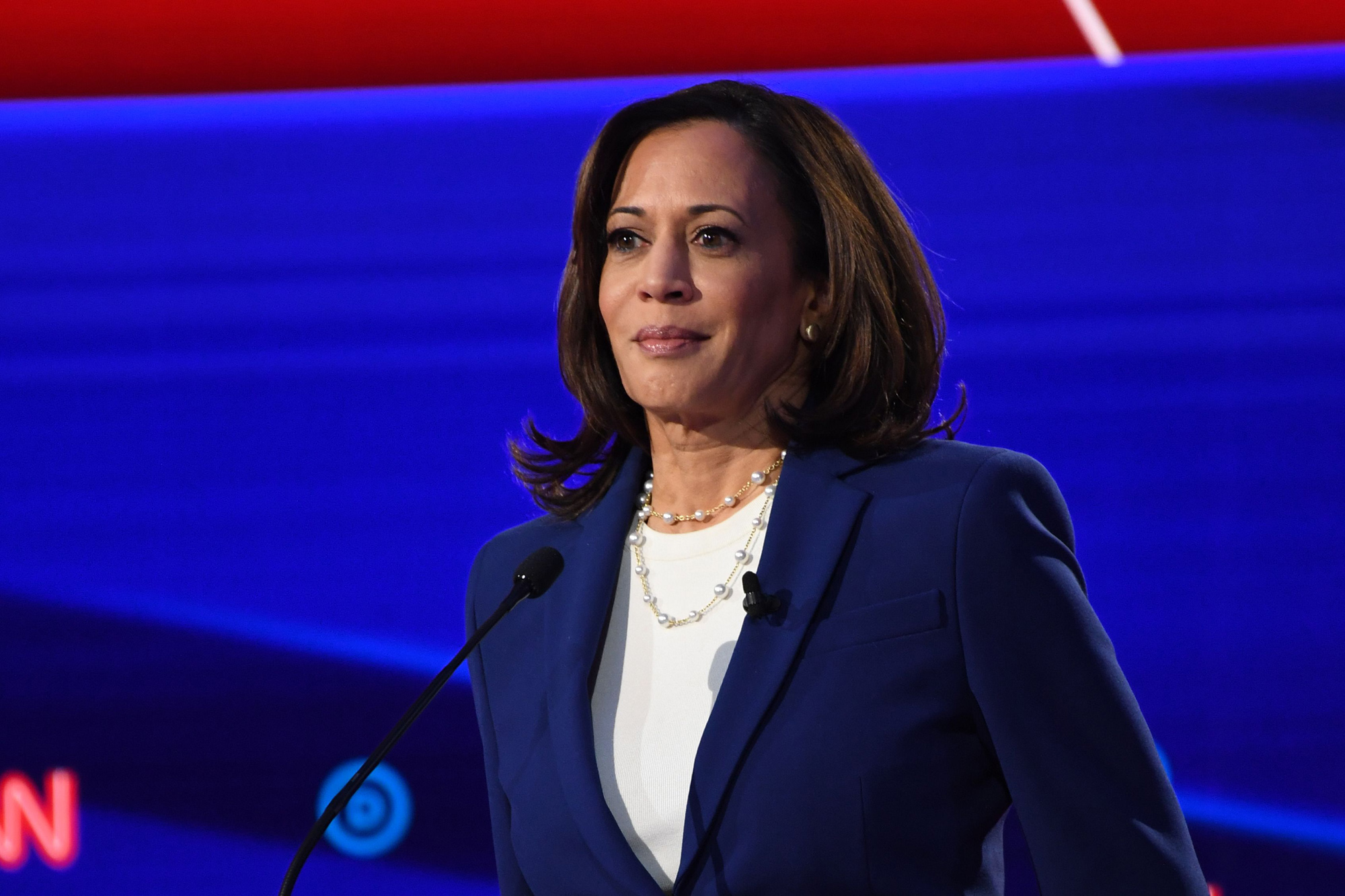
Space fans of all political persuasions should care that Joe Biden just picked Sen. Kamala Harris (D-Calif.) as his running mate.
If Biden defeats President Donald Trump this November and decides to retain the newly resurrected National Space Council (NSC), Harris will play a large role in U.S. space activities going forward. That's because the vice president chairs the NSC, a body that reviews national space policy options and makes recommendations to the White House.
Those are two pretty big "ifs," of course; nobody knows how the election will turn out, and there's no guarantee that a President Biden would choose to keep the NSC going. President Trump reinstated the council in 2017; it had last been active in the early 1990s, during the administration of President George H.W. Bush.
Related: Presidential visions for space exploration: From Ike to Trump
The uncertainty deepens when speculation extends to the possible space priorities of a Biden-Harris administration. The Democratic Party's official 2020 platform voices support for NASA, as well as the agency's drive to return American astronauts to the moon and then get them to Mars. But it's far too early to make predictions about specific policy goals and priorities.
It is worth keeping in mind, however, that new administrations often bring new space priorities with them.
For example, President Barack Obama, with whom Biden served as vice president, shifted NASA's near-term human-spaceflight goal from a lunar return to a visit to a near-Earth asteroid. Then, when President Trump came to power, he nixed the asteroid plan and put NASA astronauts back on course toward the moon, with a planned landing date of 2024.
Get the Space.com Newsletter
Breaking space news, the latest updates on rocket launches, skywatching events and more!
We'll learn more about Harris' thoughts on space in the coming days and weeks. But we already know that she pays at least some attention to goings-on in the final frontier. In 2017, for example, Harris tweeted congratulations to NASA astronaut Peggy Whitson, who had just set the American record for most total days spent in space.
And in 2019, Harris co-sponsored a bill awarding Congressional Gold Medals to Katherine Johnson, Dorothy Vaughan, Mary Jackson and Christine Darden, mathematicians whose contributions to NASA during the Cold War space race were chronicled in the book and film "Hidden Figures." She also signed on to a resolution to celebrate the world's first all-female spacewalk by NASA astronauts Christina Koch and Jessica Meir.
Mike Wall is the author of "Out There" (Grand Central Publishing, 2018; illustrated by Karl Tate), a book about the search for alien life. Follow him on Twitter @michaeldwall. Follow us on Twitter @Spacedotcom or Facebook.
Join our Space Forums to keep talking space on the latest missions, night sky and more! And if you have a news tip, correction or comment, let us know at: community@space.com.

Michael Wall is a Senior Space Writer with Space.com and joined the team in 2010. He primarily covers exoplanets, spaceflight and military space, but has been known to dabble in the space art beat. His book about the search for alien life, "Out There," was published on Nov. 13, 2018. Before becoming a science writer, Michael worked as a herpetologist and wildlife biologist. He has a Ph.D. in evolutionary biology from the University of Sydney, Australia, a bachelor's degree from the University of Arizona, and a graduate certificate in science writing from the University of California, Santa Cruz. To find out what his latest project is, you can follow Michael on Twitter.









